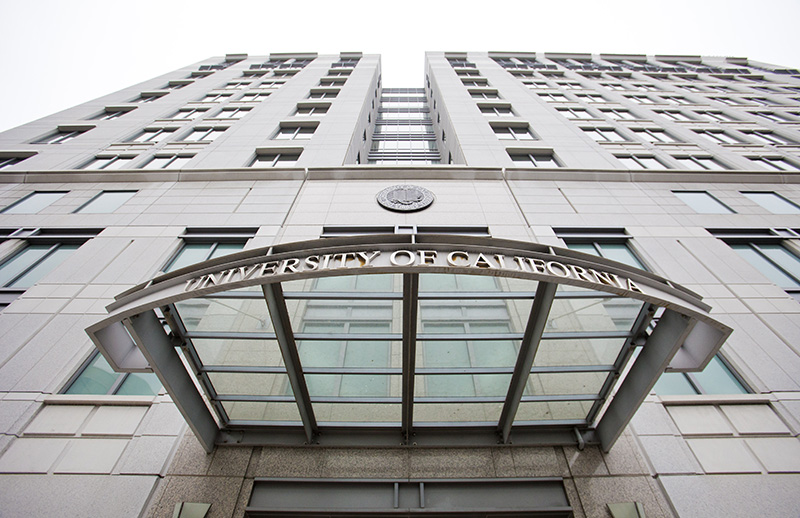
Too little time, too little money. Problems many college students have become all too familiar with. After class, studying, internships and a variety of other facets that are part of the juggling feat of being a student, finding time to work is a daunting task. Paid internships are overly competitive, other jobs are demanding of time that is already in short supply, while tuition, rent and day-to-day expenses continue to accumulate in the background. With graduation on the horizon and an increasing reserve of debt to go along with it, you have to ask: What’s a student to do?
While this question can be answered in a number of different ways, one solution has gained substantial momentum among college populations across the nation: Uber. The increasingly popular transportation service is changing the face of work for students on university campuses everywhere. Since its founding in 2009, the company’s appeal to drivers has been centered on setting your own schedule, being your own boss and most of all, generating an additional stream of income. The business model is nearly a perfect fit for the structure of student life.
In a conference call with the UCSD Guardian and other UC and Cal State campuses, Uber Chief Advisor and former campaign manager for the 2008 Obama Administration, David Plouffe, spoke about Uber, students and the changing face of work-study.
“Students find the Uber platform to be something that works within their class schedules and allows them to make additional money,” Plouffe told the Guardian. “Whether that’s to help pay for college, for room and board and other expenses.”
The ability to add an additional source of income in a flexible manner is an easy concept to adopt. While the general population of Uber drivers varies in background, recently there has been an influx of drivers who are students.
“In our research, 11 percent of the people who drive for Uber are students, so that’s double the proportion of students in the general population,” Plouffe said. “When you look at the flexibility and convenience, it’s not surprising. When I was in college, and I hate to say it was a very, very long time ago, there weren’t opportunities like this.
The landscape of work-study is rapidly changing with the introduction of versatile positions that companies such as Uber aim to provide. A decade ago, having the ability to set your own hours, be your own boss and virtually dictate the conditions of your employment was an unimaginable concept; for college students today, it’s becoming a reality.
However, Uber and other startup tech companies are under fire for the very freedoms they offer. In order to become a driver, the company requires prospective contractors to be over 21 years old, have certain liability insurances, drive a car made in 2000 or newer and, of course, pass a background check. All ridesharing contractors go through the background check from another independent contractor. This feature is also being criticized since multiple drivers in Los Angeles and San Francisco had criminal records that the background check failed to catch, according to a suit filed in August 2015 by the LA District Attorney. However, Uber has declared both claims as being unfounded, citing that its practices offer the most freedom for employees.
Since Uber hires its drivers as contractors rather than employees, they are unlikely to receive benefits such as unemployment. These new hiring practices have come under fire since they are largely unregulated; Uber works by shifting the responsibility and initiative to the drivers and sharing the profits.
“For students, the ability to make money on your own terms is very powerful,” Plouffe said. “Generally, people have two consistent observations about their life. They say they struggled because they had too little time and too little money. That’s what’s great about the Uber platform. You basically set your own schedule, you drive whenever you want or for whatever amount of time.”
Despite the controversy, the platform has certainly been embraced by not only drivers, but by young adults. The company currently has over 160,000 active drivers, eight million users, and as of September of this year, it was estimated to be worth 50 billion dollars.
“We’re seeing a lot of younger people change their behavior around cars,” Plouff commented. “Ten percent of millennials, according to our data, either chose not to buy a car or they got rid of one. You see so many young people living in cities, and with things like Uber, it’s an inexpensive, reliable way to get around.”
This statement becomes increasingly evident around areas like college campuses, where many students do not have automobiles or prefer using a service for convenience or as a safety measure to avoid drunk driving.
“We’re very excited about the role that we’re playing in helping to reduce drunk driving,” Plouffe stated. “Drivers are making sure that people get home safely. They just press a button and they know they can get home.”
The idea isn’t a concept that was previously available as a student work option, and can prove to be incredibly valuable for students across the nation. As more startups like Uber hire on a contractual basis, the effects of this flexible yet unconventional business plan will ripple throughout the economy.
“We think it’s a great trajectory for the future of the economy and the future of work,” Plouff said.











